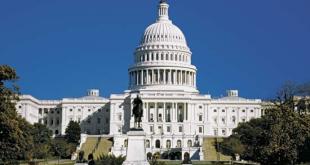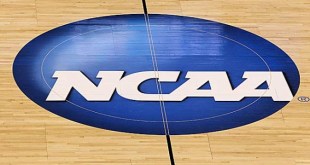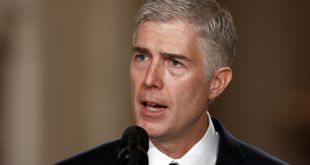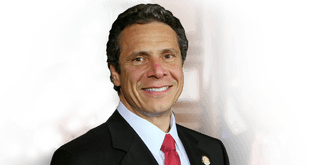As part of her opening statement, Illinois Representative Janice Schakowsky, the ranking member of the House Subcommittee on Commerce, Manufacturing, and Trade, quoted noted gaming expert Joe Namath for the proposition that popular “daily” fantasy sports (DFS) contests were just another form of sports betting – setting the tone for much of Wednesday’s congressional hearing, titled “Daily Fantasy Sports: Issues and Perspectives.”
Last fall, New Jersey Representative Frank Pallone, Jr. requested a hearing on DFS in the wake of a well-publicized advertising blitz by the DFS industry’s two largest companies, FanDuel and DraftKings. With a number of states considering, or having recently enacted, laws concerning fantasy sports contests and operators,[i] in granting Pallone’s request for a hearing, the subcommittee sought “to understand the current direction of the industry and consider whether there is a federal role to play.” According to the hearing notice by subcommittee chairman, Texas Representative Michael C. Burgess, Wednesday’s hearing would provide “a forum for all stakeholders to discuss the many aspects of this complicated issue.”
It quickly became apparent, however, that very few members of the subcommittee had even a basic understanding of the nascent industry. Much of the questioning and testimony at the hearing focused on the fundamentals, such as the differences between season-long fantasy sports contests and “daily” games. At one point, Oklahoma Representative Markwayne Mullin asked whether there was currently a regulatory body that oversees the fantasy sports industry. As one commentator put it:
No, there is not a regulatory body for DFS, Rep. Mullin. That is partly why we’re all here… #DFShearing
— Will Green (@wfcgreen) May 11, 2016
Rather than a detailed discussion regarding the possible role of the federal government in regulating DFS, the hearing largely served as a vehicle for Rep. Pallone to “level the playing field between daily fantasy sports [and] traditional sports betting.” Pallone – whose home state of New Jersey is embroiled in a multi-year court battle with the four major professional sports leagues and the NCAA over the state’s attempts to legal sports betting within its borders – frequently highlighted the perceived hypocrisy in the relative treatment of DFS and sports wagering. “I must also mention the hypocrisy of those arguing that daily fantasy sports is readily distinguishable from traditional sports betting,” Pallone said. “While quietly applying for and receiving gambling licenses in the United Kingdom, DFS operators continue to argue to interested states in the U.S. that — unlike sports betting — DFS is not gambling. Their reliance on the arbitrary distinction of skill and chance is also unconvincing, especially since both the Department of Justice and the NFL have asserted that sports betting also is a game of skill.”[ii]
Nonetheless, many of the lawmakers in attendance appeared to be generally supportive of the industry and the concept of regulation. As Michigan Representative Fred Upton noted, “[w]e must keep in mind that a patchwork of differing and contradictory state laws has the potential to negatively impact consumers, and harm further growth and innovation in the process.”
Representatives of the two fantasy sports trade associations in attendance likewise expressed a willingness to continue working with both federal and state governments to ascertain legal clarity and enact appropriate consumer protections. According to Peter Schoenke, chairman of the Fantasy Sports Trade Association, “we [the FSTA] support common sense state regulation to ensure transparency and fairness and to maintain consumer confidence.” “We’ll work with just about anybody that wants to help us figure this out,” echoed Steve Brubaker, executive director of the Small Business of the Fantasy Sports Trade Association. “I don’t think you’ll hear any daily fantasy sports company or season long fantasy sports company balk at consumer protections as long as they’re done in a way that is financially viable [for those companies] to stay in business.”
Still, with very few questions directly addressing the nature or scope of federal involvement during the two-hour fact-finding mission, a solution at the federal level does not seem imminent. It was clear that legislators will still require a significant amount of education before any real federal action can be expected, and Congress remains far behind the states in the regulatory discussion. While the hearing was hopefully informative for the lawmakers in attendance, for at least the foreseeable future, the regulation and legalization of DFS will remain an issue to be considered on a state-by-state basis.
[i] As of this writing, five states – Virginia, Indiana, Tennessee, Mississippi, and Colorado – have passed legislation this year that expressly legalizes DFS within their borders. Another state, Massachusetts, enacted consumer protection measures through the state’s Office of the Attorney General. The states permitting the games have adopted different degrees of regulations, including prohibiting minors from playing, restricting the use of computer programs (“scripts”) that can generate large numbers of entries, acting to protect participants with compulsive gambling problems, and segregating participants’ money from company operating funds.
[ii] When asked to justify why the two largest DFS companies’ had obtained gambling licenses in the United Kingdom, while simultaneously maintaining that their contests were not gambling in the United States, Fantasy Sports Trade Association representative Peter Schoenke pointed out that the laws regarding gaming in the two countries were different. This is true. Merely because on jurisdiction requires a license for a particular activity, and another does not, arguably speaks less about the nature of the activity and more about the regulatory differences between the jurisdictions. For a more detailed overview of the history of fantasy sports in America and the state and federal laws potentially applying to those games, see our previous article on the topic, From Fantasy to Reality: The Evolution and Legality of Fantasy Sports.
 The Sports Esquires Putting Sports on Trial
The Sports Esquires Putting Sports on Trial





One comment
Pingback: Sports Law Links - The Sports Esquires